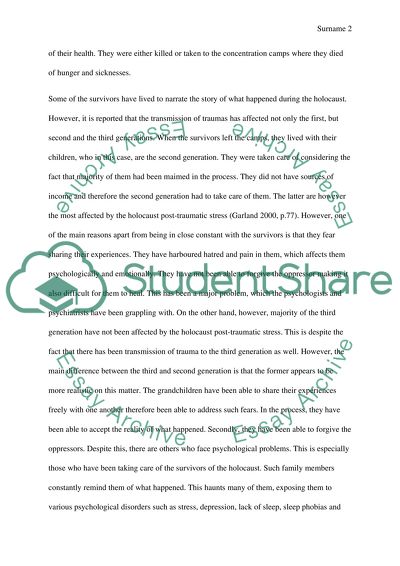Cite this document
(“The after effects in Holocaust Survivors - Post Traumatic Stress in Essay”, n.d.)
Retrieved from https://studentshare.org/psychology/1404348-the-after-effects-in-holocaust-survivors-post
Retrieved from https://studentshare.org/psychology/1404348-the-after-effects-in-holocaust-survivors-post
(The After Effects in Holocaust Survivors - Post Traumatic Stress in Essay)
https://studentshare.org/psychology/1404348-the-after-effects-in-holocaust-survivors-post.
https://studentshare.org/psychology/1404348-the-after-effects-in-holocaust-survivors-post.
“The After Effects in Holocaust Survivors - Post Traumatic Stress in Essay”, n.d. https://studentshare.org/psychology/1404348-the-after-effects-in-holocaust-survivors-post.


